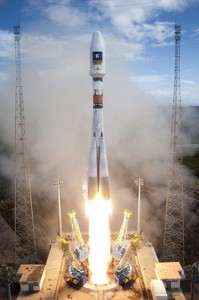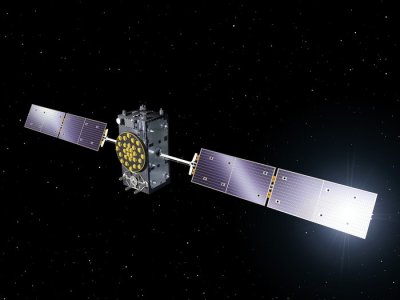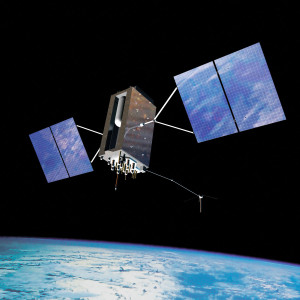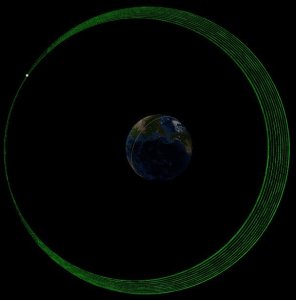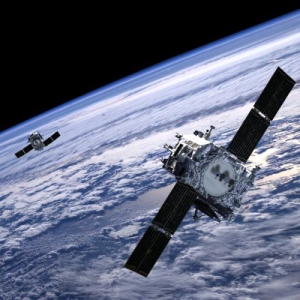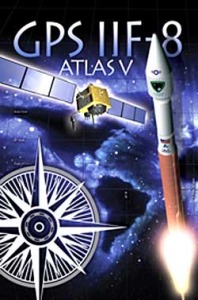In an effort to offset the launch setbacks in 2014, the European Space Agency (ESA) has announced that they will be launching three pairs of satellites into orbit in 2015, essentially doubling the current constellation. Official dates and timelines for the launches are expected to be announced sometime next week. read more
Galileo Interruption Expected Next Week
According to an article published by GPS World, the ESA is telling consumers to expect interruption to Galileo’s navigation signals during the last week of January and all of February while the Galileo Ground Mission makes some improvements. The interruption is expected to last about five weeks, and during that time the accuracy of the navigation information received from the satellites will slowly degrade and may even be replaced by dummy message during some stages of the upgrade. Consumers can check the status of the satellites here. read more
GNSS is the Future of GPS
Those of you who frequent this blog probably know that I like to keep track of what is going on with the other satellite navigation systems in the world, such as Russia’s GLONASS, China’s BeiDou and Europe’s Galileo constellation. Recently, GPS World published a really great article on its blog that explained perfectly why you should care about the other systems. Their points are all things that I already knew, but I didn’t really have the words for myself. If you get the chance, you definitely ought to give at least the first half of the article a quick read. (The latter half is all about Galileo and their issues and successes.)
ESA Moves Forward with Galileo
Europe has been working on its own version of GPS, the Galileo system, for the last several years. They’ve met with nothing but problems with their satellites and after the technical error in a launch in August left two satellites stranded in unusable orbits, everyone began to wonder if Galileo was even going to work out.
As it turns out, the European Space Agency (ESA) hasn’t given up hopes yet and only a week or so after announcing the corrected orbit of one of the two stray satellites, the ESA said that they have finally received the seventh and eighth satellites in their testing center in the Netherlands. The two newest satellites have been going through various tests during the last two weeks in a controlled environment, with more tests to come to ensure that the satellites will be able to withstand the harsh environment of space. read more
Satellite Storage Could Exceed $200 Million
The United States government is constantly upgrading the GPS satellite system, and frequently does something that we all do occasionally—orders them in bulk. But, while ordering satellites in bulk does save on some money, as it turns out it brings with it other challenges and costs.
According to a study released by the Government Accountability Office (GAO), the Department of Defense (DOD) has spent a whopping $130 million dollars on storing various satellites and in the next five years it could easily surpass more than $200 million. Of course, not all of that money is simply for GPS satellites, but the GPS II-F system was specifically mentioned in the article as one of the satellite models that was stored for a length of time. read more
Wayward Galileo Satellite Repositioned, Transmitting
If you’ve been reading this blog over the last few months, we’ve been following the journey of two Galileo satellites that were launched into the wrong orbit in mid August. Intended to be in a circular orbit to complete the first stage of the usable constellation, the satellites ended up nearly 2,000 miles off-target due to a malfunction that caused internal pipes to freeze, stranding the expensive satellites in unusable orbits.
During the end of November, one of the two satellites performed a series of 11 maneuvers over the course of 17 days to try and correct the orbit slightly and nudge the satellite upwards. The maneuvers were successful and the satellite reportedly rose more than 3500 km and now has a more circular and slightly more usable orbit. Tests are currently underway now that the satellite is in a more advantageous position. read more
U.S. Denounces Making Galileo Mandatory
In a meeting of the International Committee on GNSS earlier this month, United States GPS officials indicated they were concerned that the European Union (EU) would give preferential treatment through regulatory requirements to their Galileo system, which is expected to be completed in the next few years.
Space News reported on Friday that European Commission officials have been debating how to stimulate the use of Galileo in recent months, and it was proposed to use regulations to require that navigational equipment using Galileo be installed on aircraft, automobiles or other platforms. As US officials have stated, however, such a regulation would break the WTO Agreement on Technical Barriers to Trade and the WTO Agreement on Government Procurement, which are designed to create a non-discriminatory national market.
Russia, China Agree to Build GLONASS Stations
Earlier this month, Russia unveiled plans to set up GLONASS monitoring stations in at least one, location in China. According to itar-tass, the station will be used for transport, farming, rescue operations, environment monitoring and law enforcement, but not military. The plans for the stations were pitched by Russian Space Systems Company, a leading company in design, production and operation of space information systems. read more
Galileo Constellation in Trouble
Things aren’t looking too good for the ESA as far as their Galileo constellation goes. GPS World reported last week that out of the six currently orbiting satellites, only one of them is working as expected, in the correct orbit and 100% fully operational. After the most recent incorrect deployment of two satellites, the expected operational date was pushed back from 2018 to 2020, but these reports make me wonder if it might be pushed back even further. read more
GPS IIF Satellite Scheduled for Wednesday Launch
Fall is the time to launch satellites, it would seem. The Air Force and United Launch Alliance have scheduled a launch of their eighth GPS IIF satellite from Cape Canaveral Air Force Station this Wednesday. The launch window is around 18 minutes and will begin at just after 1 p.m. EDT. You can view the live webcast here on Wednesday starting at 1:01 p.m..
The GPS IIF satellite is one of the newer next-generation GPS satellites intended to improve accuracy and enhance performance of the U.S. GPS satellite constellation. The satellite that will be replaced with the next-generation GPS IIF was launched in 1997 and has been operating for 17 years—more than 9 years past it’s expected functional service life. read more
